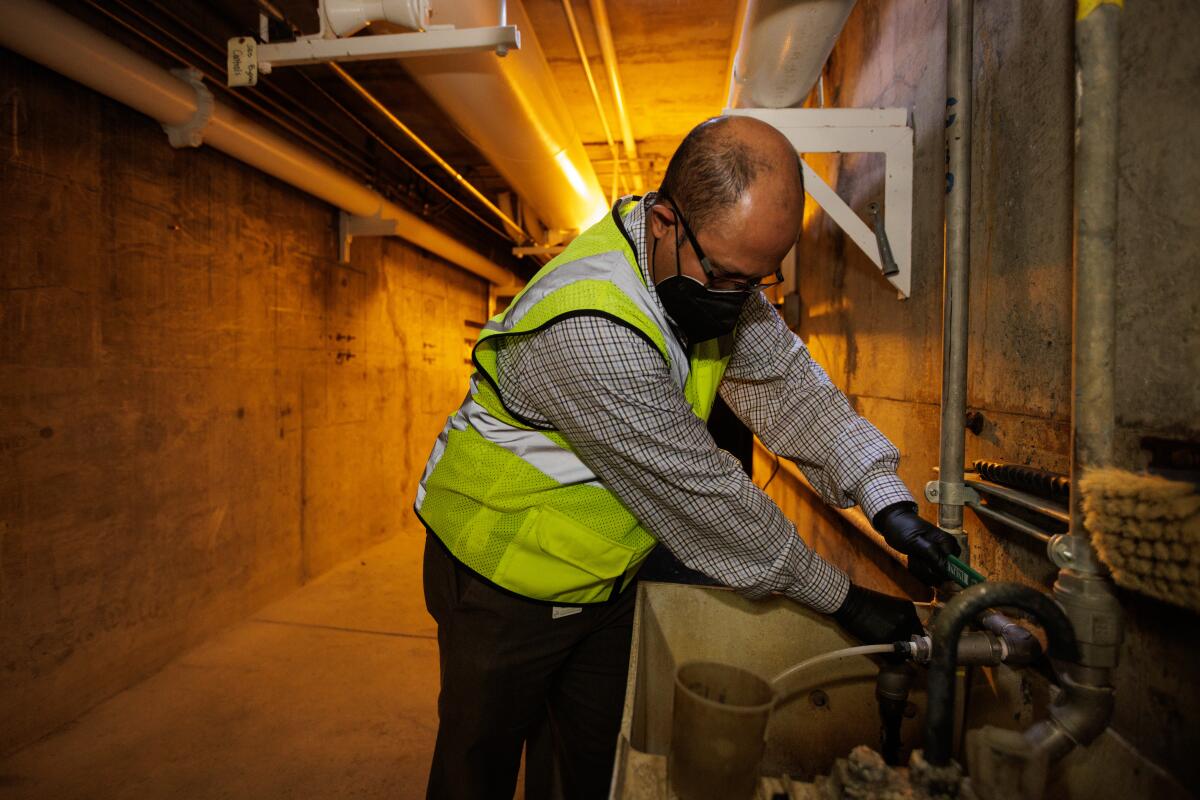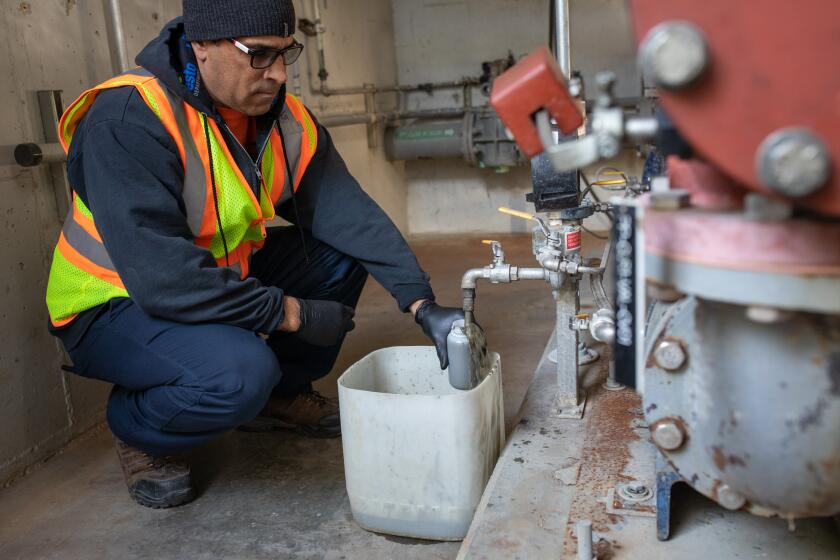Sewage could be California’s next tool in fighting the opioid epidemic

- Share via
A California legislator is proposing a new law that would require routine tests of statewide wastewater for illicit drugs to better inform public health and law enforcement officials.
Propelled by the success of epidemiological sewage testing during the COVID-19 pandemic, public health officials have continued to build on ways that wastewater monitoring can be used to inform policies and practices. In December, the National Institute on Drug Abuse announced a pilot program to test wastewater for illegal drugs and overdose reversing agents, such as Narcan, in 70 cities across the nation, including San Francisco and San Diego.
Assemblymember Matt Haney (D-San Francisco) would like to see that work expanded statewide to aid in the response to the ongoing opioid epidemic. Last year became San Francisco’s deadliest for drug overdoses, and in Los Angeles, fentanyl — the synthetic opioid 50 times more potent than heroin — became the leading cause of the city’s rising overdose deaths.
Haney’s new bill, AB 3073, would require biweekly testing of the state’s largest wastewater facilities for drugs, including fentanyl, cocaine, methamphetamine and xylazine, an increasingly deadly drug also called Tranq. If passed, the law would create a process for the collection and testing of sewage, led by the State Water Board with the State Department of Public Health, which would publicly share the results.
“Wastewater drug testing empowers us to be proactive and respond effectively and immediately when we see spikes in certain areas or of particular drugs,” Haney, chair of the state’s Select Committee on Fentanyl, Opioid Addiction and Overdose Prevention, said in a statement. “The state cannot simply wait for people to die before we act.”
2023 has become San Francisco’s deadliest for drug overdoses, a grim milestone reached before the year has even ended.
He said the wastewater results can provide “critical information to respond quicker to stop these drugs and intervene smarter and deploy resources with more precision.”
The bill hasn’t yet been analyzed for its fiscal impact, but Haney’s spokesperson Nate Allbee said their office estimates that a test for each major plant — of which there are 250 statewide — would cost about $200. Done twice a week, which the bill said would provide sufficient data to analyze drug trends, the testing regimen would cost the state an estimated $100,000 a week.
Testing wastewater for illicit drugs has been implemented widely in Europe for the past 20 years, Allbee said. He said this practice has helped local governments detect spikes in the use of certain drugs and identify new, potentially dangerous drugs entering the illicit market.
“Despite the fact that the United States is experiencing an unprecedented deadly epidemic from drug overdoses, we are way behind the curve in adopting wastewater-based drug testing” to combat the opioid epidemic, Haney said. “Other countries have proven that testing wastewater for illicit drugs allows public health departments to identify trends in drug use in neighborhoods and proactively target public health interventions in communities before overdose deaths occur.”
Many public health officials say the success of COVID-19 sewage surveillance should make it a regular tool in tracking infectious diseases.
Wastewater testing continues to be one of the most reliable sources for tracking COVID-19 spikes.
Haney’s bill isn’t yet scheduled for a committee hearing, but Allbee said it should be heard by the Assembly Health committee in the coming weeks.
More to Read
Sign up for Essential California
The most important California stories and recommendations in your inbox every morning.
You may occasionally receive promotional content from the Los Angeles Times.
















